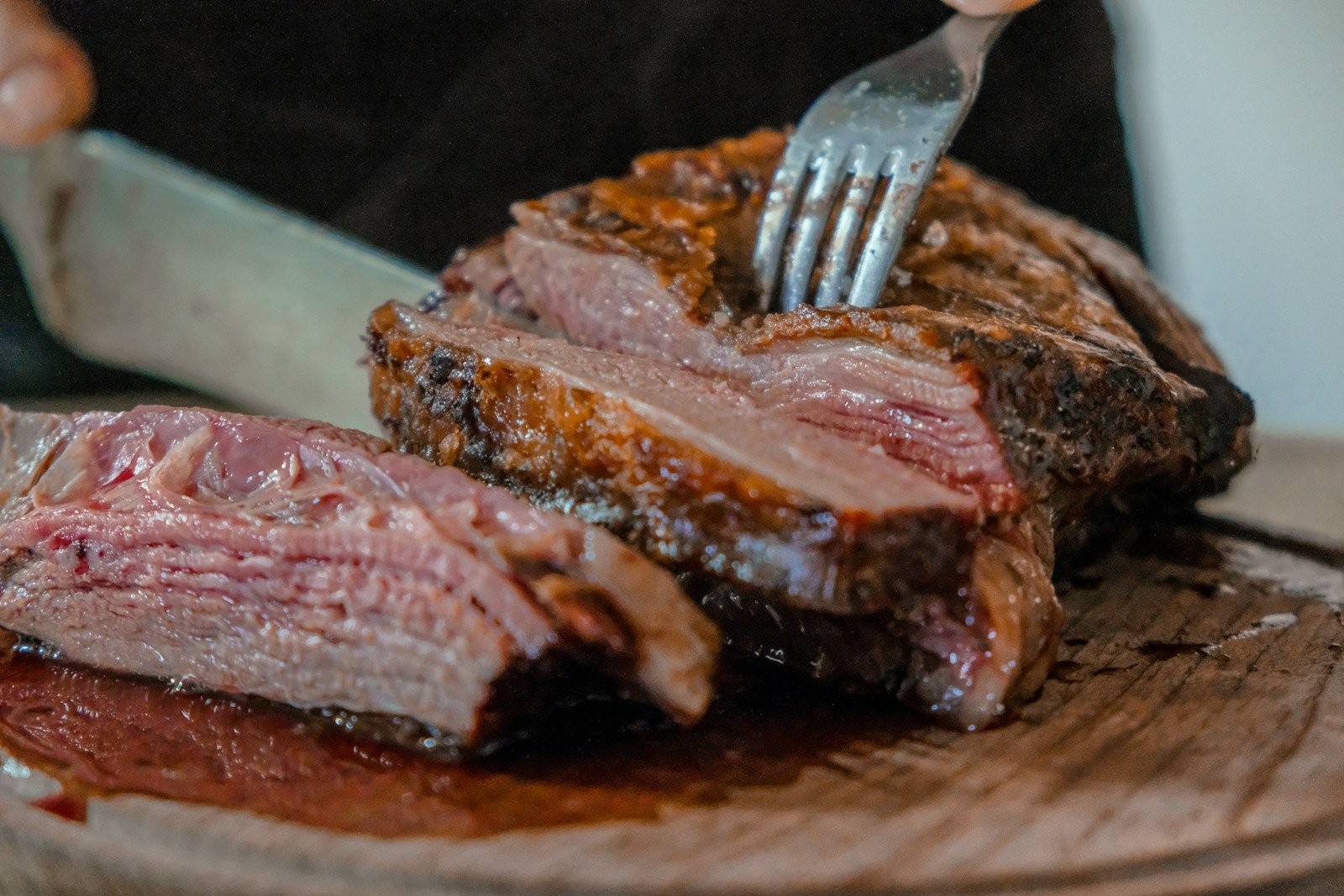Have you ever thought about why some Christians don’t eat pork, even though the New Testament talks about freedom? The topic of dietary rules often brings up the old laws from the Old Testament. This makes people wonder about Christians’ views on what animals are clean or unclean to eat. We’ll look into the history of these food rules and see how faith affects what we eat today. Why Can’t Christians Eat Pork?
Historical Context of Dietary Restrictions
Exploring historical dietary laws helps us understand many religious traditions, especially in Judaism. These rules, based on the Old Testament guidelines, guide the food choices of millions. The books of Exodus and Leviticus detail the do’s and don’ts that shape Jewish dietary restrictions today.
The reasons behind these laws are complex, blending culture, spirituality, and health. The ancient Israelites were told which foods to eat and avoid as part of their pact with God. These rules shaped their diet and helped keep the community strong over time.
For example, the ban on eating pork had both practical and deep meanings. It helped the Israelites stand out from their neighbors, showing their unique faith. This rule has played a big part in keeping Jewish identity alive through many changes.
Looking into these historical rules gives us a peek into how ancient beliefs still influence today’s religious lives. For those curious about how these rules impact modern beliefs and actions, diving into dietary laws in the Bible offers new insights.
Understanding Clean and Unclean Animals
The Bible talks about clean and unclean animals in detail. These rules come from Leviticus 11 and Deuteronomy 14. To be considered clean, an animal had to chew its cud and have split hooves. If it didn’t, it was seen as unclean and not fit for eating.
These rules helped the Jewish people know what they could and couldn’t eat. They were more than just about food; they helped keep the faith and culture strong. Following these rules was important for believers in ancient Israel.
Why Can’t Christians Eat Pork?
The rule against eating pork comes from the Old Testament, in Leviticus and Deuteronomy. The Old Testament pork prohibition is key to many dietary rules for religious groups. It affects Jewish traditions and makes Christians think about their food choices.
The Old Testament Prohibition
In Leviticus 11:7, the Bible clearly says, “And the swine, though it divides the hoof, and be clovenfooted, yet he cheweth not the cud; he is unclean to you.” This rule makes pork unclean. It’s part of a bigger set of laws about being holy and living right.
These laws helped the people of Israel know what was sacred and what wasn’t. Following them showed they were living right in God’s eyes.
Understanding Leviticus and Deuteronomy Laws
The Levitical laws cover many areas of life for the Israelites, showing how to live a holy life. The Deuteronomy dietary guidelines are similar to Leviticus, focusing on the moral and spiritual sides of food. These rules aimed to build a strong community and keep people pure.
They also led to debates in modern Christianity about what to eat and why. This has resulted in different views on these old laws.
The Role of Jesus in Dietary Laws
Jesus changed how people saw dietary laws. He taught that what matters is the heart, not just the rules. In Mark 7:18-19, he said what goes into us doesn’t make us unclean. This was a big change from the strict rules of the Old Testament.
This change brought a new kind of freedom in the New Testament. It told believers to think about food with faith, not just by the book. Jesus showed that food isn’t what makes us unclean. This idea lets people choose what to eat based on their culture and beliefs.
Today, Jesus’ words still guide Christians in their food choices. He taught that our actions and relationships matter more than just following rules. This view changes how we see food, making it a deeper part of our faith.
Jesus’ teachings on food are still shaping how we live today. They focus on love, faith, and being together as a community. These ideas help us blend faith with our daily lives, even when we’re eating with others. For more on spiritual topics, check out this resource on biblically accurate angels.
Peter’s Vision and Its Implications
Peter had a vision in Acts 10 that changed Christian history. It changed how people saw food laws and who could be part of the faith. This vision taught a big lesson about accepting everyone into the Christian community.
Acts 10:12-16 Explanation
Peter saw a sheet with many animals he wasn’t supposed to eat. He heard a clear message: “Do not call something unclean if God has made it clean.” This vision showed that the rules about food didn’t matter anymore. It was a sign that people from other groups could join the faith.
This vision was very important for Peter. It showed him that old food rules didn’t count anymore. This changed how Peter and others thought about being pure and who could be part of the church.
Christian Freedom From Old Testament Laws
Christian freedom is closely tied to the Old Testament dietary laws. Christ’s work has changed how we see food rules. Galatians 3:13 says Christ has freed us from the law’s curse, giving Christians freedom from old Jewish laws.
The Fulfillment of the Law in Christ
Christ’s life and death show us the fulfillment of the law. Believers are now free from the law’s heavy rules. This freedom lets Christians make their own food choices, without following old laws. Galatians teaches us about this new freedom in our faith.
How Paul Addresses Dietary Laws
Paul talks about food in 1 Timothy 4:1-5. He tells the faithful to be thankful for all foods, freeing them from old food laws. Paul says God made everything good, so Christians can eat anything without guilt. He encourages believers to enjoy all of God’s creation, thanks to their freedom in Christ.

Health Perspectives on Eating Pork
There are different views on how pork affects our health. Many see pork as a good source of protein, vitamins, and minerals. These nutrients are key for our bodies to work right. Pork is packed with B vitamins like thiamine, niacin, and vitamin B12, which boost our health.
But, there are also worries about eating pork. High fat content can harm our heart health if eaten too much. Also, there’s a risk of getting sick from food like trichinosis and some bacteria. This mix of good and bad points makes choosing what to eat tricky.
People think about their health, beliefs, and community values when deciding what to eat. Some choose pork for its nutritional value. Others avoid it for health or personal reasons. Making these choices affects how much pork we eat.
Modern-Day Christian Practices Regarding Pork
In today’s world, Christians have different views on eating pork. These views come from history, culture, and beliefs. They affect how different groups eat.
Variations Among Denominations
Many Christian groups allow eating pork. They follow New Testament teachings that say we’re free from old dietary laws. Pork is a big part of their food, adding to their diverse culinary traditions.
On the other hand, some Christian groups keep the Jewish traditions alive. They don’t eat pork because of the Old Testament’s rules. Their choice shows their dedication to their faith and traditions.
These differences show how faith and food are closely linked. Christians make their food choices based on their beliefs and the culture around them. This makes the topic of Christian diets very interesting.
Spiritual Perspective on Food Choices
Food choices in Christianity have deep spiritual meanings. They show how people see their eating habits. Eating on purpose is not just for the body but also for the soul. Christians try to honor God in all they do, including what they eat.
What we eat shows our spirituality and commitment to Christian values. For some, eating is more than just a choice. It’s about living out their beliefs. Saying thanks before meals is a way to show gratitude and connect with faith.
Seeing food as spiritually connected helps us eat with purpose. Christians think about how their food choices reflect their faith. This way, eating becomes a way to live out their beliefs every day. It connects faith with daily life in a meaningful way.
The Importance of Intentions in Eating
For Christians, the reasons behind what we eat are key to our beliefs and actions. Mindful eating is more than just following food rules. It shows a deep understanding of our spiritual goals. When we eat, it’s a chance to think and be thankful, which is important in the Christian faith.
Believers should think about how their food choices match their spiritual path. The reasons we choose what to eat show our faith and how we see food. By eating with purpose, Christians can connect more with their meals. They see meals as times to come together and be thankful, not just to eat.
Food is very important in Christianity for spiritual growth. Understanding the role of intentions in eating leads to a full approach that includes being mindful, thankful, and aware of our food choices. For more on how Christianity views food choices, check out Paul’s interpretations and their link to today’s eating habits.
FAQ
Why Can’t Christians Eat Pork?
Some Christians avoid pork because of Old Testament rules. These rules, found in Leviticus and Deuteronomy, call pork unclean. They follow these rules to stick to their faith’s traditional teachings.
What do the Old Testament laws say about pork?
The Old Testament, especially Leviticus 11:7, bans pork. It calls it an unclean animal. These laws help keep people ritually pure and set them apart, especially in Jewish communities.
How does Jesus’ teaching affect the consumption of pork for Christians?
Jesus in Mark 7:18-19 says what we eat doesn’t make us unclean. This teaching moves away from Old Testament food rules, including pork. It brings a new freedom in what Christians can eat.
What is Peter’s vision in Acts 10 and what does it signify?
Peter has a vision in Acts 10 where God tells him to eat unclean animals. This vision shows God’s plan to welcome non-Jews into Christianity. It also means Christians should not judge others based on food rules.
What does Galatians 3:13 teach about dietary laws for Christians?
Galatians 3:13 says Christ has freed believers from Old Testament laws. This means Christians are free from the specific food rules meant for the Jews.
Are there health benefits or risks associated with eating pork?
Pork can be nutritious, offering protein and vitamins. But, it can also be high in fat and carry diseases if not cooked or handled right. These facts affect how people choose to eat pork.
How do different Christian denominations view the consumption of pork?
Christians have different views on eating pork. Many follow New Testament teachings and eat pork. But, some, especially with Jewish roots, still avoid it for traditional reasons.
Why are intentions important in a Christian’s dietary choices?
A Christian’s reasons for eating matter a lot. Eating with gratitude and mindfulness shows their faith and bond with God. Choosing to eat with intention is seen as being true to Christian values.

Rockin’ the faith, one verse at a time!
Growing up, the Bible’s stories deeply impacted me. Now, with over 15 years of preaching experience, I blend timeless teachings with modern technology, making them relevant for today’s world.
Bible Hub Verse is my platform to share historical insights and thought-provoking articles, exploring both familiar and uncommon Christian topics. My passion is building a welcoming online space for everyone to learn, grow in their faith, and discover the Bible’s enduring message.
Join the journey!
God bless you.









